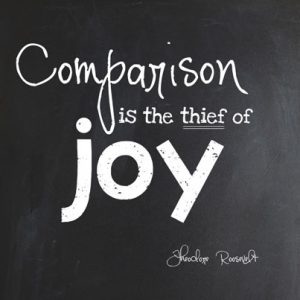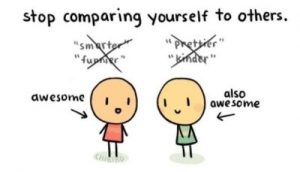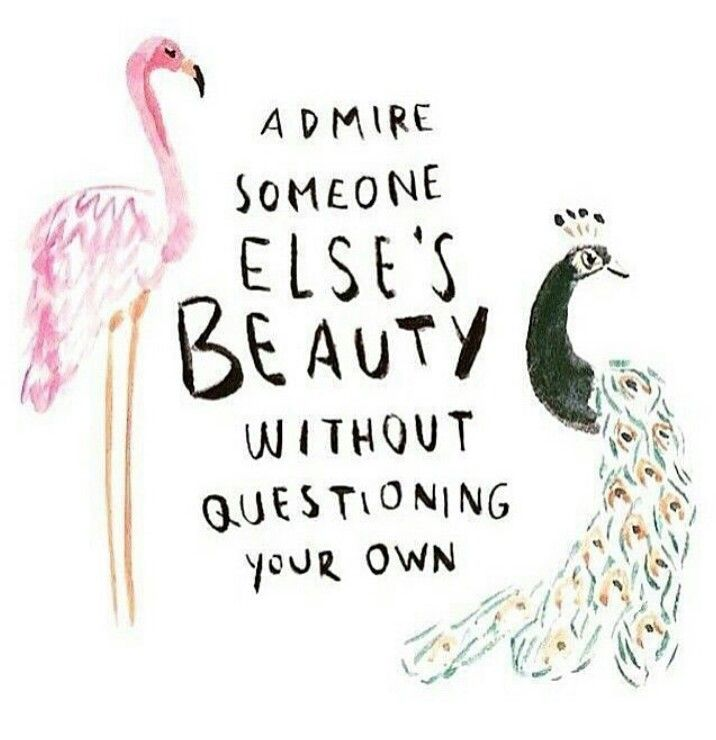Have you ever been driving down the road and cars are speeding by…and in that moment you feel pressure to go faster…to keep up?
It happens.
And not just on the road.
It happens when we see an outfit someone else is wearing. We love it and so we begin to think we should be wearing something different.
It happens when the neighbor gets a new car. It’s new and shiny and expensive. We want one and so we begin to think our car isn’t that great anymore.
It happens when someone plans something for their kid’s birthday. It was a neat idea. We loved it and so we begin to think our child’s birthday party wasn’t that great.
We compare!
But guess what? Comparing, as in noticing a difference, isn’t actually the problem.
So what are we actually doing?
First we NOTICE something. The birthday party or the new car. Great! We made an observation.
It’s good to notice things. We wouldn’t be able to pause to enjoy the colorful sunset if we didn’t notice it first. We wouldn’t be able to comfort a friend if we didn’t notice they were a little off their game.
Next, we often make a JUDGEMENT. We decide how we feel about what we noticed. The party was really fun. There were a lot of neat games. The car is fancy. I love the color (or that it’s not dented).
We need to make judgments like this all the time. This kind of judgement keeps us away from the edge of a cliff because we judge that to be dangerous. This kind of judgement takes us back repeatedly to our favorite restaurant because we love the food there.
Then, we COMPARE. We see how the thing we observed is the same or different than ours or other things we’ve seen. The party had a lot of decorations and way more games than mine. The car is newer and looks a lot nicer than mine.
This kind of comparison helps us choose what kind of ice cream we’re in the mood for at the moment. This kind of comparison helps us recognize something we have in common with a new friend.
And actually, none of that is bad so far.
It’s what we do next causes some problems.
At this point we sometimes go a step further and DETERMINE VALUE based on the comparison.
The party was MORE fun because it had more games. It was a BETTER party because there were more decorations. That child must have felt MORE loved because there was more effort on the party than on the one for my kid.
Since the car looks nicer it’s way BETTER than mine. The neighbor looks MORE stylish driving than I do driving my old car. They are much MORE cool than me.
This last step hurts us in a couple of ways.
It often diminishes us because we rate ourselves less. (It could also be the opposite, which also causes problems.)
When we feel less about ourselves we are less able to make things happen, we are less motivated, we are less in tune with our individual abilities. When we are less productive we feel even worse about ourselves.
Stating value in this way also separates us from other people instead of unifying us. Even surrounded by people we feel more loneliness and resentment.
Instead of drawing energy and support from those around us, jealously, bitterness, and separation increase.
In this way, comparison of value is the thief of joy.
We don’t take joy in ourselves.
We don’t find joy in others.

We often think things should be the same so if they aren’t, one has to be better than the other.
But that simply isn’t true.
They could just be different. We are all different. That is ok.
We will do things differently. That is ok.
Your way can be good. And my way can be good. I can be happy about how I did something and I can be happy for the way you did something.
What if we changed that last step or skipped it all together? What if we didn’t think in terms of more or better?
What if instead of trying to keep up with each other we recognized the differences and were ok with it.
What if we said their party was great and she loves to make decorations so that’s great that she could. And my kid loves one on one times so we did some small family adventures.
And look, both of our children are loved. Wonderful!
Consider how changing this part of thinking could add to your happiness.
Not only would you be happier with what you have and are, you would find happiness in what other people are and do.
We could all celebrate together!
We would encourage and build together.
There would be no stopping us.



Leave A Comment